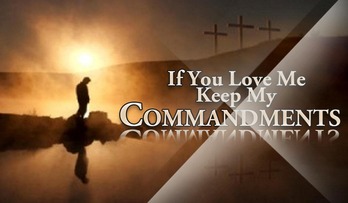L A W OF THE H E A R T
by Jeremy Chance Springfield
When someone brings up the phrase “The New Covenant,” the context of Jeremiah chapter 31 is typically discussed. Part of the details included in that particular chapter is the New Covenant and what it is intended to accomplish. Probably the most quoted detail of the many that are listed there involves the writing of the Law upon our hearts. The passage of most relevance to the topic is verse 33, which says:
For this is the covenant which I shall cut with the house of Israel after those days, says YHWH: I shall place My Instruction in their innermost, and upon their hearts I shall write it, and I shall be Elohim for them, and they shall be for Me a people.
The New Covenant’s most prominent feature has been popularly touted as having the Instruction – the Law – written upon the hearts of men. While there are many ways that this factor could be expounded upon that are entirely valid, there is also a detail that should not go overlooked, but so often is left undiscussed. That detail is that in multiple passages of Scripture we are called upon to have the Law already written upon our hearts before the New Covenant is ever brought up!
The first time we see it is in the book of Deuteronomy 6:6, where right after the most important commandment in all of the Law is given, this is stated:

And
these
Words
which
I
command
you
today
shall
be
upon
your
heart.
these
Words
which
I
command
you
today
shall
be
upon
your
heart.
If that were not plain enough for each to see, He repeats Himself again a few chapters later in 11:18, by saying:

And you shall establish these, My Words, upon your hearts, and upon your souls, and you shall tie them for a sign upon your hands, and they shall be for leather headpieces between your eyes.
In this we can see that central to His original desire for people to love Him with all they have is also the injunction to have His words impressed upon our very hearts. That is how important it is to Him. His beautiful love letters are to be close to the heart; in truth, to be inscribed thereon. Long before there was ever talk of a New Covenant in all its legitimate and longed-for glory, He was already asking for the Law to be written upon the hearts of His people. While the Law was yet a new thing to the nation of Israel, He desired it to be in their innermost.
As romantic-sounding as it might be to write the Words upon our hearts, the question must be honestly asked: Was it ever done? Did anyone ever keep it? Was it ever placed upon the heart, like He asked? Did anyone ever really, truly obey it?
To answer that, we must first address the common and misguided misconception that has so unfortunately been promoted in the history of Christianity: the idea that the Law could not and cannot be kept, that man is unable to do what has been asked of him by the Most High.
This is an outright and utter falsehood that has come about by misapplying His own Words. If you have been taught this then you have been taught a lie, and you can most certainly reject it in favor of the empowering grace of the Most High given to you to do His Word. This is where setting aside your preconceived ideas is very important. Be careful to set them aside, but also be careful not to let your mind be too open, and in the safe place in between, let the Word speak for itself. In the very words of Moses, the prophet who spoke with the Lawgiver face to face, we can read the truth in the book of Deuteronomy 30:11, which says:
For this, the commandment which I am commanding you today, it is not difficult for you, and it is not too remote for you.
The above is a translation very literally done from the Hebrew. The popular translation of the KJV, however, is noticeably different, rendering “difficult” instead as “hidden.” Incidentally, that is the only time that the KJV renders the Hebrew term NIFLEYTH as such; all other times it is translated more appropriately as something along the lines of “marvelous” / “wonder” or “difficult” / “hard.” But it should be pointed out that in no way is it defined correctly as “hidden” in the Hebrew language. Such translations as the NKJV and the WEB also continue the error, but other English versions thankfully render it more faithfully. This small detail goes to show how translators, attempting to preserve a preconceived idea, can alter the meaning of the Word all too easily, and why it is so important for each individual to approach the text with as unadulterated a translation as possible, if not to just read the original text itself.
The Word says it plainly for us to read: it is not too difficult to do. Have you been taught that man cannot keep the Law? If so, stand such teaching up next to the truthful, spirit-filled words of Moses, and decide for yourself which teaching you want to believe. This is where deception can be laid aside, and let the Spirit use His Words rightly in your heart to mold you in His image. When the proper reading is restored in the text, we can see that it is not hard to do the Law, that is, if we believe the words that Moses has written. Messiah Himself had something to say about that very important factor, when he said in John 5:45-47 the sobering words:

How do you suppose that I shall accuse you before the Father? There is one who accuses you: Moses, he in whom you are hoping. For if you believed in Moses, also in Me you would believe, for Moses wrote about Me. And if his writings you do not believe, how can you believe My own words?
According to Messiah, we must truthfully believe Moses’ words to truthfully believe His own words. In this topic, we are talking about how Moses stated the Word was not too difficult to do. Additionally, going just a couple verses further on in the text from Deuteronomy 30, to verse 14, we see that Moses even says this:
For the Word is very near unto you – in your mouth, and in your heart, for you to do it.
Isn’t that amazing? Look at what he says: the Word is near, in our mouth and in our heart, so that we can do it. It is not too difficult to perform, according to the words of Moses. Are we willing to believe him? We should, for even Messiah makes a similar declaration to a person in the New Covenant writing of Matthew 19:16-17, where it is written:

And one came, drew near, and said unto Him, “Good Teacher, what good shall I perform that there shall be for me life that is everlasting?” Then He said to him, “Why do you call Me ‘Good?’ None is good except One: Alaha. But, if you desire that you should enter unto life, guard the commandments.”
This is as serious as it gets. A man just came to Yeshua and asked how he would be “saved,” that is, enter to true and lasting life. This is not the time for a lie or a deception or a parable or some symbolic proverb. This is the moment when Yeshua needs to be as candid as possible. This is when the cards are laid on the table and only truth is spoken.
What is the Messiah’s answer?
Pray a prayer?
Raise your hand?
Get baptized?
He conveniently leaves out those comfortable deviations practiced in modern churches. Does that alarm you? Is that offensive? Messiah isn't playing by the acceptable and safe rules of churches or denominations, but the by Spirit He speaks the truth. Are we really listening? Do we sincerely value what He is saying here? His witness is the surest and most valid we could possess; will we pay attention to our Redeemer's response?
Yeshua the Messiah, the living Word, and the One to whom all authority in heaven and earth has been given, does not deviate a bit from the Word given formerly to Moses: one must keep the commandments. In fact, Messiah brings the issue of the keeping of the Law into a far more crystal-clear picture; whereas the words of the Law actually never speak about the efficacy of keeping it going further than this specific life, Messiah brings up the need of keeping the Law to this questioning, seeking individual, who desired to know what he must do to be eternally saved. Is that not startling and scandalous? How can Yeshua bring the necessity of keeping of the Law into the same arena as salvation and not be considered a legalist? Is He twisting the purpose of the Law in regards to salvation? Do we believe what He has just said, or do we ignore it? Perhaps it is us, with our own preconceived ideas, that have twisted the purpose of His simple statement. Yeshua, our King, must of necessity be correct about the proper use of the Law, and we must have been so unfortunately in error. It cannot be the other way around. We are forced to decide in His favor, else He be a liar in the eyes of His bride; He openly upholds the use of the Law in the arena of salvation, just as Moses spoke of it not being too difficult.
This is as serious as it gets. A man just came to Yeshua and asked how he would be “saved,” that is, enter to true and lasting life. This is not the time for a lie or a deception or a parable or some symbolic proverb. This is the moment when Yeshua needs to be as candid as possible. This is when the cards are laid on the table and only truth is spoken.
What is the Messiah’s answer?
Pray a prayer?
Raise your hand?
Get baptized?
He conveniently leaves out those comfortable deviations practiced in modern churches. Does that alarm you? Is that offensive? Messiah isn't playing by the acceptable and safe rules of churches or denominations, but the by Spirit He speaks the truth. Are we really listening? Do we sincerely value what He is saying here? His witness is the surest and most valid we could possess; will we pay attention to our Redeemer's response?
Yeshua the Messiah, the living Word, and the One to whom all authority in heaven and earth has been given, does not deviate a bit from the Word given formerly to Moses: one must keep the commandments. In fact, Messiah brings the issue of the keeping of the Law into a far more crystal-clear picture; whereas the words of the Law actually never speak about the efficacy of keeping it going further than this specific life, Messiah brings up the need of keeping the Law to this questioning, seeking individual, who desired to know what he must do to be eternally saved. Is that not startling and scandalous? How can Yeshua bring the necessity of keeping of the Law into the same arena as salvation and not be considered a legalist? Is He twisting the purpose of the Law in regards to salvation? Do we believe what He has just said, or do we ignore it? Perhaps it is us, with our own preconceived ideas, that have twisted the purpose of His simple statement. Yeshua, our King, must of necessity be correct about the proper use of the Law, and we must have been so unfortunately in error. It cannot be the other way around. We are forced to decide in His favor, else He be a liar in the eyes of His bride; He openly upholds the use of the Law in the arena of salvation, just as Moses spoke of it not being too difficult.

But to answer the lingering question previously asked, did anyone ever do it? Scripture answers this affirmatively in a few places. The book of Psalms 40:8, written by David himself, tells us this information:
To do Your pleasure, O my El, I delight; and your Instruction is in the midst of my inward parts.
David explicitly tells us that the Instruction / Law is in his inward parts. This particular Hebrew word is often times translated as “heart,” but it is a more generic term that signifies just the inward areas of a man. It encompasses the heart and all other organs. With this understanding, David is actually saying the Word’s presence is not just in one place, but is part of who he is in an all-encompassing manner. It is a beautiful statement made by the King, the man of whom it is said was after the heart of Elohim.
Another instance is from the book of Isaiah 51:7, where the prophet speaks in the authority of the Holy One a powerful statement:
To do Your pleasure, O my El, I delight; and your Instruction is in the midst of my inward parts.
David explicitly tells us that the Instruction / Law is in his inward parts. This particular Hebrew word is often times translated as “heart,” but it is a more generic term that signifies just the inward areas of a man. It encompasses the heart and all other organs. With this understanding, David is actually saying the Word’s presence is not just in one place, but is part of who he is in an all-encompassing manner. It is a beautiful statement made by the King, the man of whom it is said was after the heart of Elohim.
Another instance is from the book of Isaiah 51:7, where the prophet speaks in the authority of the Holy One a powerful statement:

Listen to Me, you who know righteousness, the people in whose hearts is My Instruction; do not fear the scorn of men, and of their persecution do not be shaken.
The Law was in the hearts of His people even at this time of national distress in the history of Israel, when the forces of Assyria and the forces of Egypt were vying for Israel’s allegiance. He states that even at this tumultuous time, the people still have His Word upon their hearts. It wasn’t too late to maintain and renew their commitment to Him.
The Law was in the hearts of His people even at this time of national distress in the history of Israel, when the forces of Assyria and the forces of Egypt were vying for Israel’s allegiance. He states that even at this tumultuous time, the people still have His Word upon their hearts. It wasn’t too late to maintain and renew their commitment to Him.

The biggest surprise, however, comes in the New Covenant writings themselves, where we see that the apostle Paul was able to perform the Law in his own upbringing, as he tells us in the book of Philippians chapter 3, where, in an extended recounting of his history and accomplishments before coming to trust in Yeshua as the Messiah, he notes in verse 6 this detail:
…in zeal - a persecutor of the congregation; and in the righteousness of the Instruction I became without blame.
I would like the reader to pay careful attention to what he has written there preserved for all to see. Think about it; he says that when it came to the righteousness one could attain through performing the Law, he had reached blamelessness! That is utterly astonishing, is it not? No other place anywhere in the Word has a person ever claimed for themselves that they have attained righteousness through their performance of the Law. Paul stands alone in that statement. He isn’t lying, but telling his readers his pedigree, of sorts. There is no falsehood to his statement. Luke, in his Gospel, in 1:6, tells us that Zachariah and his wife Elisabeth were blameless in all the commandments. But Paul alone actually states that reality concerning himself, which is a huge thing to claim if one does not want to risk being called a liar.
…in zeal - a persecutor of the congregation; and in the righteousness of the Instruction I became without blame.
I would like the reader to pay careful attention to what he has written there preserved for all to see. Think about it; he says that when it came to the righteousness one could attain through performing the Law, he had reached blamelessness! That is utterly astonishing, is it not? No other place anywhere in the Word has a person ever claimed for themselves that they have attained righteousness through their performance of the Law. Paul stands alone in that statement. He isn’t lying, but telling his readers his pedigree, of sorts. There is no falsehood to his statement. Luke, in his Gospel, in 1:6, tells us that Zachariah and his wife Elisabeth were blameless in all the commandments. But Paul alone actually states that reality concerning himself, which is a huge thing to claim if one does not want to risk being called a liar.
In this regards, I must ask: Is that a problem? Is there anything in this reality that troubles your understanding of the Word? If Paul was able to reach blameless righteousness through his performance of the Law, then why, I ask, is there even a need for the New Covenant at all? Why the promise from Jeremiah 31:33?
The reason for the promise of the New Covenant in light of a person being able to personally keep the Law is found in the careful wording of the covenant itself. Read again the words from Jeremiah 31:33 and see if it jumps out at you:
For this is the covenant which I shall cut with the house of Israel after those days, says YHWH: I shall place My Instruction in their innermost, and upon their hearts I shall write it, and I shall be Elohim for them, and they shall be for Me a people.
Do you notice the difference that exists in this declaration that is manifestly different from every other verse quoted that mentions the Law being upon the heart of man? Although the difference is admittedly subtle, it changes everything. It lay in the wording of the legal covenant contract in these two phrases: “I shall place,” and “I shall write.” NATHATI (I shall place) and EK’TAVENNAH (I shall write) are the two sweetest expressions in this contract, for they are our hope and what makes the New Covenant so very different than that which came before.
The major difference is that what was asked of men to do before concerning the Law will be done in them through the power of the One who has been asking it all along. It will no longer be a commandment that man is left to perform on his own, but will be a commandment that man will perform in intimate conjunction with the heart of the Holy One beating in time with ours. It isn’t a case of Him doing it so that we don’t have to, but rather, a case of Him doing it with us, allowing us to do it like never before! It is a union of purpose, instigated by the heart of the Holy One. Such a beautiful promise it is, and is undeniably repeated again to the prophet Ezekiel, who himself certainly knew of Jeremiah’s prophecy of the New Covenant, when he was told this amazing truth in 11:19-20 of his book:
The reason for the promise of the New Covenant in light of a person being able to personally keep the Law is found in the careful wording of the covenant itself. Read again the words from Jeremiah 31:33 and see if it jumps out at you:
For this is the covenant which I shall cut with the house of Israel after those days, says YHWH: I shall place My Instruction in their innermost, and upon their hearts I shall write it, and I shall be Elohim for them, and they shall be for Me a people.
Do you notice the difference that exists in this declaration that is manifestly different from every other verse quoted that mentions the Law being upon the heart of man? Although the difference is admittedly subtle, it changes everything. It lay in the wording of the legal covenant contract in these two phrases: “I shall place,” and “I shall write.” NATHATI (I shall place) and EK’TAVENNAH (I shall write) are the two sweetest expressions in this contract, for they are our hope and what makes the New Covenant so very different than that which came before.
The major difference is that what was asked of men to do before concerning the Law will be done in them through the power of the One who has been asking it all along. It will no longer be a commandment that man is left to perform on his own, but will be a commandment that man will perform in intimate conjunction with the heart of the Holy One beating in time with ours. It isn’t a case of Him doing it so that we don’t have to, but rather, a case of Him doing it with us, allowing us to do it like never before! It is a union of purpose, instigated by the heart of the Holy One. Such a beautiful promise it is, and is undeniably repeated again to the prophet Ezekiel, who himself certainly knew of Jeremiah’s prophecy of the New Covenant, when he was told this amazing truth in 11:19-20 of his book:

And I shall give to them one heart, and a new Spirit I shall place in your innermost, and I shall remove the stone heart from their flesh, and give them a heart of flesh, so that in My statutes they shall walk, and My right-rulings they shall guard, and perform them, and they shall be for Me a people, and I shall be for them Elohim.
This statement fleshes out (pun intended) the introduction of the New Covenant that is recorded in Jeremiah 31:33. This builds upon it and gives it a “how.” A heart united and a new Spirit is given to the people “so that” they perform the Law! This is a bombshell of a proclamation! Yah is giving the people the very unction and power to serve Him in the New Covenant by giving them a unified heart and a new Spirit! This same idea is repeated yet again later on in the book of Ezekiel 36:26-27, echoing what was said to the prophet earlier:

And I shall give to them a new heart, and a new spirit I shall place in your innermost, and I shall remove the stone heart from their flesh, and shall give to them a heart of flesh, and My Spirit I shall place in your innermost, and make you to walk in My statutes, and My right-rulings you shall guard, and perform them.
The text largely parallels the former one from Ezekiel 11, yet it is tweaked slightly in wording to leave no doubt as to the purpose of the New Covenant relationship: the Spirit given is none other than Yah’s Spirit, and the purpose for this indwelling Spirit is boldly made clear: to “make you to walk in My statutes!” To be filled with the Spirit is to be walking in His Law, performing His statutes and guarding His right-rulings! For this reason, Paul could so definitively say that the Law is “Spiritual” (Romans 7:14), and can only be done rightly in the New Covenant by the partnership of the Spirit. Indeed, without the Spirit’s aide and leadership, one cannot perform the Law as Yah desires of us in the New Covenant. Similarly, this detail is also why Paul could so forcibly say what he did in Philippians 3:7-8, right after stating how he had attained blameless righteousness according to the Law, where he says in complete honesty:

But these which had been an advantage for me I considered them as an expense, because of the Messiah. I even consider them all as an expense, because of the greatness of the knowledge of Yeshua the Messiah, my Master; because of whom everything is an expense, and is considered as dung, that I should get the advantage of the Messiah.
When one properly understands the sheer advantage of having the Messiah in the New Covenant, which is the partnership of the Spirit, then it quickly becomes clear why Paul could say such a thing against his former glories and successes. Instead of remaining on his own, doing what he could do in his own strength, with the New Covenant came the intimacy with the Holy One that man had so long been promised.
Keeping the Law was one thing. Man could do that. Man can do that. But the greater purpose that was repeated so often throughout the Hebrew Scriptures was that He would dwell in our midst, and be our Holy One. This is seen in such places prominently, like Exodus 25:8, 29:45-46, 1st Kings 6:13, Psalm 68:18, Ezekiel 37:27, and in the New Covenant in Revelation 7:15 and 21:3. This covenant desire transcended the mere keeping of the commandments that man could perform in his own power. What was desired by the Creator was for man to be united with Him to the point that He could be in our midst, among His people. For that, a greater power was needed. A covenant that absolutely insured the obedience of the people was promised, so that sin would not enter into the camp and bring about a withdrawal of the Presence of the Most High.
Such a covenant was promised and is being realized in the New Covenant, where the Law is written by the Most High upon our hearts, and not just by the attempt of man, in order that He could dwell with us. Such an intimate dwelling is not promised or realized in any previous covenant that still stands. Only in the New Covenant, built upon the firm foundation of the preceding covenants, do we have the offer of His unfailing power working in our hearts in order that He can be in our midst.
It would be insane to reject that offer of covenant-intimacy to remain alone in the former method. Indeed, the original mandate to place the Law upon the heart is now being realized in a completely new and powerful way with the assistance of the Spirit in the New Covenant. His original desire was for man to be on the same page as Him. To be intimate, close, and with hearts aligned was the yearning.

This yearning can be seen even in His own Word in a surprising manner: The last word in the Law, found in Deuteronomy 34:12, is the word “Israel.” The last letter of that word is the letter Lamed, which is the “L” sound. The first word in the Law, found in Genesis 1:1, is the word that translates as “In the beginning.” The first letter of that word is the letter Bet, which is the “B” sound. Since Hebrew is read from right-to-left, if one reads the last and first letters of the Law as a single word, you have a word spelled out as Lamed-Bet, which is pronounced as LEB, and in Hebrew, means “heart.”
Therefore, the entire Law is effectively written within the “heart.” He has shown us exactly what He wanted of us, and with the New Covenant, has moved in as close as He can be, sharing His own Spirit with us, that we might, as eternal partners, perform His desires together, united as one.
Therefore, the entire Law is effectively written within the “heart.” He has shown us exactly what He wanted of us, and with the New Covenant, has moved in as close as He can be, sharing His own Spirit with us, that we might, as eternal partners, perform His desires together, united as one.
All study contents Copyright Jeremy Chance Springfield, except for graphics and images, which are Copyright their respective creators.